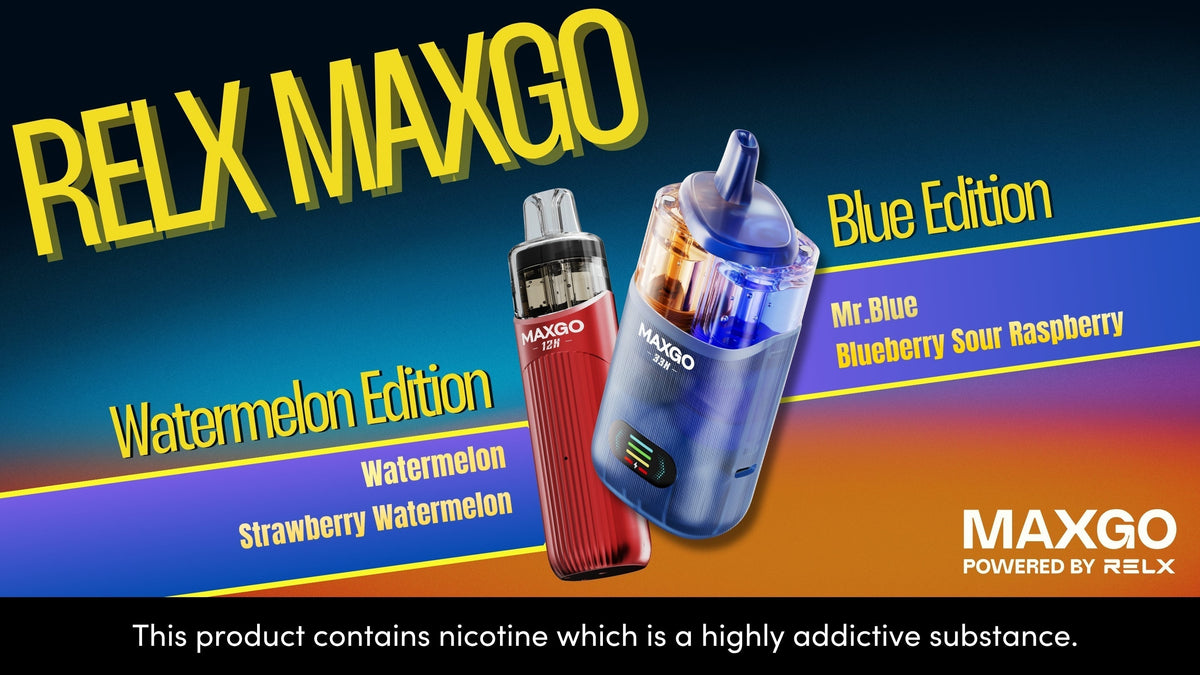Why Do I Feel a Nicotine Buzz After Vaping?
Nicotine is the addictive chemical found in vapes, so when vaping, you’re likely to feel the nicotine buzz.
But what is a nicotine buzz, and why do you feel it after vaping?
Here, we’ll delve into what goes on in your body when inhaling from your vape and why this feeling is so addictive.
What Exactly Is a Nicotine Buzz?
The buzz derives from the release of endorphins, dopamine, and glutamate. Generally, when using any form of nicotine, such as tobacco or that found in vapes, the immediate result is a feeling of exhilaration.
Vapes contain nicotine, the addictive component of vaping, which produces a buzzing feeling, especially among newer users. With a lack of research, it’s unclear what the effects of vaping will be long-term.
However, the nicotine in vapes remains addictive to those who use them, and this can lead to dangerous consequences.
People who vape can inhale more nicotine than those who smoke cigarettes. While vaping poses less risk than traditional cigarettes, vapes aren’t risk-free.
Vapers can intensify the effect of the buzz they feel by buying extra-strength juice cartridges or using a high-voltage vape pen. However, it’s best to stay away from changes outside recommended regulations, and you should avoid speeding up adverse physical effects, as this can be dangerous.
If you aren’t already a nicotine user, it’s recommended to avoid vaping to limit adverse health repercussions, as nicotine is an addictive substance. That said, using vaping to quit smoking has proven effective for those who already smoke tobacco.
How Does a Nicotine Buzz Work?
Nicotine stimulates your central nervous system, which releases specific hormones and neurotransmitters. When you vape or inhale nicotine, the chemical enters your bloodstream and swiftly reaches your brain. Once there, the release of epinephrine (the adrenaline chemical) causes the nicotine buzz.
Epinephrine increases your heart rate and blood pressure, dilates your pupils, alters your metabolism, expands air passages, and affects blood sugar levels. Usually, adrenaline releases during your fight-flight-freeze mode, and if you’ve experienced that feeling, you’ll know that your breathing can increase and your heart will beat faster. So it’s easy to understand how a nicotine buzz can feel like a whole-body experience.
However, unlike fight-flight-freeze mode, nicotine also stimulates the release of dopamine. Put simply, dopamine is a chemical that makes you feel good. Nerve cells use dopamine to communicate signals associated with pain, pleasure, and reward.
It’s not just vaping and cigarettes that create this sort of dopamine buzz. Products like caffeine also stimulate dopamine neurotransmitters, boosting mood for many. Like most addictive drugs, there’s a desire to create a euphoric dopamine level and activate the reward system, making you likely to use the drug again.
The addictive chemical creating this dopamine release creates a relaxing and pleasurable buzz that users will likely want to repeat.
What Does a Nicotine Buzz Feel Like?
Everyone is different, so one person’s experience of a nicotine buzz will differ from another’s. Additionally, the experience will change based on how tolerant a person is to the drug already. Some common side effects include:
- A sense of calm or tiredness
- Increased concentration and focus
- Increased alertness
- Head rush or lightheadedness
- Dizziness or wooziness
- Increased heart rate
- Breathing problems
- Rapid breathing
- Decreased appetite
- Increased mood
- Increased blood pressure
- Nausea and vomiting
- Diarrhoea
Not all side effects are positive, and it’s unpredictable which effects an individual will experience. It wouldn’t be surprising for first-time nicotine users to become light-headed due to their low tolerance. As usage continues, that effect is likely to lessen.
How Long Does a Nicotine Buzz Last?
Once you inhale the nicotine, the buzz can occur within ten seconds. The buzz from a vape could last between 10 - 30 minutes, and this depends on your tolerance. You’ll become more tolerant as you continue to use vapes for longer — making it less likely that you’ll feel the effects.
As nicotine is addictive, this decrease in the impact won’t put vapers off; instead, they’ll likely increase how much they vape or the nicotine levels in their e-juice to experience the buzz they did before.
For long-time vapers, the buzz can disappear as quickly as it came, encouraging users to vape more.
Why Does Vaping Stop Giving a Buzz?
As explained above, the more you use nicotine, the greater a tolerance you’ll build against its effects, much like many other drugs. For example, those who drink several cups of coffee daily are less likely to feel the full-body impact of the caffeine they consume than those who rarely consume caffeine.
When nicotine stimulates your brain’s receptors to release neurotransmitters, such as dopamine, the receptors don’t have an unlimited capacity. In other words, the receptors get “full.”
When this happens, more nicotine won’t have much of an impact aside from making you feel ill. And the more you use nicotine, the more the receptors get “filled,” meaning you can no longer feel the buzz.
At this stage, nicotine isn’t a novelty to your brain or nervous system; it becomes expected, and once you have this dependence, your body becomes addicted.
Is There a Way to Get the Buzz Back?
One solution is to stop consuming nicotine until the nicotinic receptors are once again “empty”. If you want to cut back on nicotine consumption, you can always consider vaping without nicotine — but it’s important to note that this also comes with some side effects of its own. If you want to reduce your tolerance, the longer you go without vaping (or smoking), the more likely it is you'll experience the buzz again.
If your body isn’t addicted to nicotine and you want to experience the short-lived buzz, it’s best to vape infrequently. However, vaping infrequently doesn’t necessarily rule out the possibility of becoming addicted. While “social smoking” might seem manageable, many social smokers can quickly slip into regular, daily vaping, so always be wary of this as a possibility.
Frequently Asked Questions
Is It Normal to Feel Buzzed After Vaping?
For those who haven’t been vaping or using nicotine for long, it’s normal to feel a nicotine buzz after even one inhalation. The buzz can last 10-30 minutes and has different side effects depending on the individual and their nicotine tolerance.
Final Thoughts
The nicotine buzz is highly addictive, but for those who have been vaping for a long time, this buzz can weaken. The side effects differ for everyone (and not all are positive), but many vapers seek this buzz because of its pleasant side effects.
Should you need to restock your vape stash, explore RELX’s collections today!
Also in Vape Knowledge

RELX MaxGo Series Showdown: Which Powerhouse Matches Your Vaping Rhythm?

Beyond Disposable: How RELX MAXGO 33K & 12K Redefine Sustainable Vaping Excellence

How Long Until I Can Vape After Wisdom Teeth Removal?
Vaping after wisdom tooth removal is not recommended, as it can cause complications like dry sockets. Patients should wait at least three days before vaping to ensure proper healing and minimize risks associated with the extraction site.


















